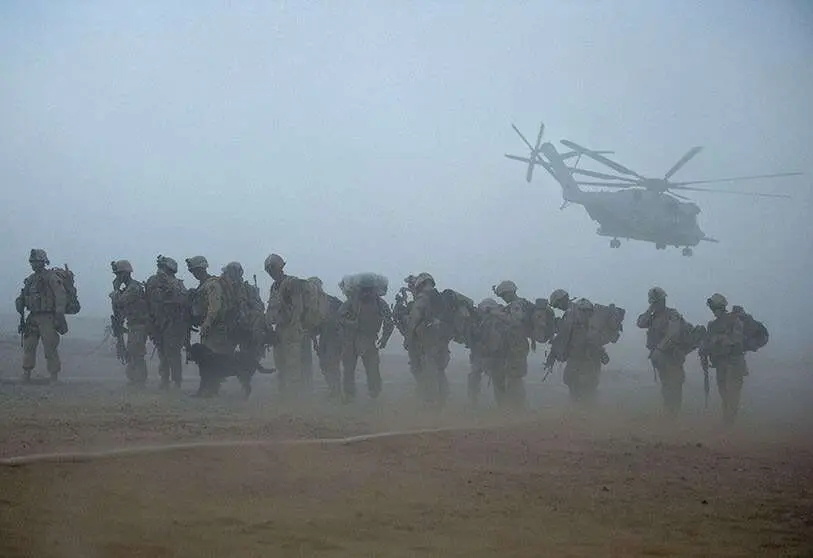What the US disengagement from the Middle East says

Since May, the US has begun withdrawing some of its troops stationed in the Middle East. It is well known that US rear bases are mainly located in Saudi Arabia, Kuwait and Jordan, much to the chagrin of local populations who have never accepted the US footprint on their soil. With the withdrawal of anti-missile batteries in these three territories, thousands of US troops are leaving the region and anti-aircraft defences in the Middle East are being reduced.
It is a second life that is promised to these armies. In the US, even more than elsewhere, nothing is lost, everything is transformed. "Some of this equipment will be sent to the United States for much-needed maintenance and repair. Others will be redeployed to other regions," Jessica McNulty said laconically at the Pentagon. The US military is reorganising, shifting priorities and warning of a possible return. "We also maintain the flexibility to quickly send forces back to the Middle East if necessary," the same source continued. Joe Biden and his administration are reshuffling the cards and announcing new balances in the region according to their interests and those of Israel. No one is unaware that the military anti-missile arsenal was intended for Iran. Washington considered it necessary to control space and in its show of force it spared no expense in the profusion of means. However, under the auspices of appeasement, the new president's administration hopes to reinstate the Vienna agreements.
Beyond the Middle East, it is Asia that worries the United States today. As the Chinese Communist Party celebrates its centenary and Beijing extends its power and influence across much of the continent, protecting totalitarian regimes such as Myanmar's military junta, the United States is changing course and rethinking its international security policy, although it had already begun to think about it. As a reminder, before the end of his term, Trump had outlined a transfer of troops to the Pacific to deal with the Chinese threat. Today this direction is confirmed under Biden, but let us not forget that in 2011 and under the Obama administration a policy of focusing on Asia had already been initiated.
The US is aware that it has been involved in multiple conflicts and wars in recent years. Twenty years of war in Afghanistan have cost the lives of more than 2,000 Americans, but "the time has come to end America's longest war", the US president recently declared.
Today Washington is not only withdrawing from these wars and casting off to the Pacific, but encouraging its allies to do the same and even to take back their nationals in Iraq and Syria. "The United States continues to urge countries - including coalition partners - to repatriate, rehabilitate and, where appropriate, prosecute their nationals," US diplomatic chief Anthony Blinken Europe had invited from Rome.
France, for example, the European supplier of jihadists to Daesh (1,200 departures according to official figures) does not want to repatriate its nationals who fought in the ranks of the terrorist group. This position is shared by the United Kingdom and Switzerland. Only Italy takes back its nationals enlisted in the ranks of IS and tries them on its territory. According to Human Wright Watch, more than 63,000 women and children of Daesh fighters are being held in camps run by the Kurdish-led Syrian Democratic Forces. The detainees are nationals of 60 different countries. And there are another 10,000 foreign fighters held in Syria.
The US disengagement from the Islamic State terrorist group is also reflected in its withdrawal from the Sahel alongside France. IS, which has lost ground in Iraq and Syria, is massively redeploying in Africa.
As a reminder, France has recently announced the end of Operation Barkane at a time when more and more countries are falling into the hands of terrorist groups affiliated with IS. Washington's perimeter of intervention is not shrinking, but changing direction. The US economic, cultural and military power has no intention of ceding its place to Xi Jinping.

